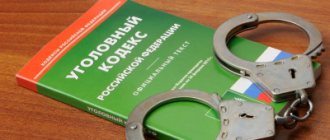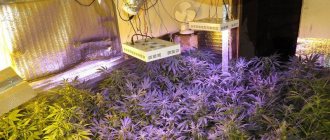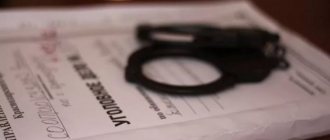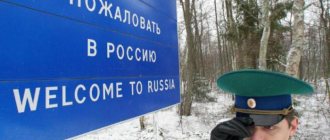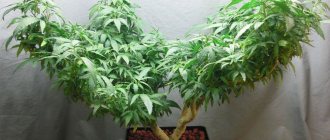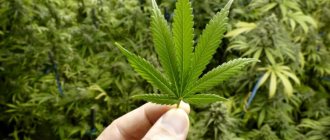Comments on Article 231
The article for the cultivation of marijuana names the object of encroachment in the sphere of trafficking in plants that contain drugs. These crimes are dangerous to public health.
- Subject – plants prohibited for cultivation (hemp, poppy, coca bush). The list of plants is defined in Article 18 of the Law “On Narcotic Drugs”. It is prohibited to cultivate cannabis for illicit consumption or use in drug trafficking.
- Decisions to ban the cultivation of hemp and other plants are made by the Government. Varieties of hemp: Indian, South Chui. Poppy: oilseed, opium, ornamental. Drug-containing plants include blue lotus, mushrooms containing psilocybin or psilocin, cactus containing mescaline, Hawaiian rose, predictor sage, ephedra.
- To determine whether the plant is classified as prohibited or drug-containing, an examination is carried out. Cultivating plants that contain too low a concentration of prohibited substances (morphine, tetrahydrocannabinol) that are not capable of intoxicating and causing harmful effects is not dangerous. Therefore, this is not a crime under Article 231. For example, sowing one hemp bush in northern Siberia.
- The objective side is sowing, acquiring, growing, cultivating. Sowing means planting seeds or seedlings without permission on land plots, including empty ones. This is done for the purpose of replanting in a greenhouse or on a natural plot of land.
- The acquisition of seeds when the plant has not reached maturity is considered as preparation for the act. Sowing is a completed crime at the moment of introducing seeds or seedlings into the soil. It doesn't matter whether they sprouted or sprouted.
- Cultivation – caring for plants to bring them to maturity. This includes weeding, fertilization, and protection from adverse weather factors. Cultivation is completed in composition at the time of these actions.
- Cultivation – cultivation of plants in the form of improving technologies for their growth, breeding varieties, fencing areas from damage by animals. Cultivation is completed in terms of composition at the moment of action, regardless of the result.
This is important to know: What is needed to recognize a contract as not concluded
All actions with plants must be illegal - carried out outside the legislation of the Russian Federation, without a license. General subject – a sane person over 16 years of age. The subjective side is characterized by guilt of direct intent.
The purpose of cultivation does not affect qualifications. The first part describes a crime of minor gravity, the second - a serious one. If the cultivation of plants is accompanied by storage, transportation and marketing, then additional qualification is carried out under Articles 228 and 228.1.
Crimes by an organized group are committed with a distribution of roles, some participants perform other functions - security of areas. A large size of hemp cultivation is considered to be from 20 plants, and especially large - from 330.
Find a place outside
The first thing to do when planting cannabis is to find the space that best suits the growing requirements. Your plants should receive as much direct light as possible to produce bushy textures and heavy buds. It is best to find a place with a southern orientation if you are in the northern hemisphere, and vice versa if you are in the southern hemisphere.
If you want to grow on your own property, find a place with good drainage and healthy soil. Additional considerations include protection from strong winds, privacy and quick access.
What does judicial practice show under this article?
When cultivating narcotic plants, the Criminal Code of the Russian Federation applies Article 231. It is often used, as many people seek to grow illicit plants to obtain drugs for the purpose of using or selling them.
- Citizen G. grew hemp on his plot of land outside the city. Afterwards, he dried it, crushed it and made cigarettes or sold the powder to drug addicts for smoking. He was tracked down and detained. Over 100 cannabis bushes were found on the site. This was recognized as large in size and became the reason for initiating a criminal case. Additionally, his actions were classified as drug sales. The court made a guilty verdict, G. was imprisoned for 6 years.
- Citizen M. was engaged in floriculture and grew various flowers. She came across a poppy in one of the packets of seeds. She didn’t know it was prohibited, so she imprisoned him. In the summer, the investigation carried out a check on the land plots of the population and saw poppy bushes on the citizen’s property. Since there were not many of them (3 pieces), this did not become the basis for initiating a criminal case. They interviewed the citizen, gave her a warning and ordered her to pull out the bushes. She did just that.
- Citizen V. was growing opium poppy in his garden. He had 4 acres of land, which he planted all with poppy seeds, after which he began cultivating it, drying it and making narcotic substances. Neighbors complained about him, the investigation checked his actions and found out that they were illegal. Since the bushes were grown on a large scale, V. was prosecuted. He was imprisoned for 7 years.
What equipment will you need?
Hemp itself is unpretentious and grows in most types of soil. It successfully withstands drought and receives enough moisture from rain and soil - it does not require artificial watering. The roots of the trunks are good at drawing out harmful elements from the ground and preventing weeds from growing, so you don’t have to weed the grass.
But to grow technical species, agricultural machinery and equipment is needed:
- tractor;
- hemp harvester;
- binder;
- hemp thresher.
The tractor is used to plow the soil and sow. Then the crop is harvested with a combine, tied into sheaves and threshed to separate the seeds from the tops. You can do without a combine harvester and a hemp binder if you buy a semi-mounted hemp cutter used in conjunction with a tractor. The harvesting speed will decrease, but the unit will be able to cut the grass and tie it into sheaves, which will save the initial investment.
If you buy a new tractor, you can opt for the MTZ 320 4M Belarus, which costs 900,000 rubles. It is suitable for a growing area of up to 20 hectares, which is quite enough for industrial plant breeding. By purchasing used equipment, you can reduce costs by up to 30-50%, depending on the year of manufacture and condition of the equipment.
MTZ 320 4M Belarus with trailer
Together with a tractor, a mounted hemp cutter is used, which cuts and ties the trunks into sheaves. From domestic models, buy ZhK-1.9, the harvesting speed of which reaches 1.09 hectares per hour of work. The price of such used equipment is 100-200 thousand rubles. Factories provide the cost of new devices only upon request. There is an imported analogue from the Czech Republic - SCHUM 4.2 HH, but it is more expensive.
The hemp thresher threshes the sheaves and cleans the seeds. Its design includes:
- conveyor for capture;
- stripping mechanism;
- roja conveyor;
- grinding unit;
- bolt;
- elevator for collecting seeds;
- sieve mill for sifting;
- fan for removing small debris.
The MLK-4.5A model, costing 500,000 rubles, is suitable.
Responsibility for growing hemp in 2022
The Criminal Code of the Russian Federation has a separate article numbered 231, which clearly states the punishment for the illegal cultivation of drug-containing plants.
Thus, for breeding and growing cannabis on a large scale, the perpetrator or perpetrators may face the following punishment:
The punishment for growing cannabis will be harsher if:
- A group of people were engaged in illegal activities.
- The attacker was engaged in the cultivation of prohibited grass on an especially large scale.
It is important to know: What is an invoice according to the TORG-13 form: how to fill it out correctly, why it is needed, a sample and a form to fill out
In these cases, the perpetrators will face the following punishment:
- imprisonment for a term of up to 8 years with restriction of freedom (up to 2 years) or without such restriction.
What is hemp cultivation?
Expert opinion
Pankov Roman
Cultivation of hemp refers to the creation of conditions under which the “grass” will not only grow well, but will also be resistant to adverse weather conditions.
Cultivation also refers to actions aimed at improving cultivation technology, developing new varieties, increasing the yield of hemp, etc.
According to Art. 18 of Federal Law No. 3-FZ of 01/08/1998 “On Narcotic Drugs” it is prohibited to cultivate hemp on the territory of Russia.
The only exception is the cultivation of this “weed” for its further use for educational, scientific purposes, as well as in industry (if it is not used for the manufacture of drugs).
Cultivation of hemp for further legal use for educational and scientific purposes can only be carried out by state enterprises that have the appropriate license.
Cultivation of hemp for industrial purposes can only be carried out by legal entities or individual entrepreneurs.
Legal status of CBD
It is important to understand that CBD, unlike THC, is NOT a psychoactive compound, and therefore its effect on the body is fundamentally different from that of THC. However, the legal status of cannabidiol is different for each country
In recent years, CBD has gained increasing interest and coverage in the scientific world, with a large number of scientific studies being conducted every year proving its therapeutic properties. As a result, the legal status of CBD oil around the world is changing rapidly. What is its legality in the CIS countries in 2021, primarily in Russia?
In the Russian Federation, Cannabidiol is NOT included in the List of narcotic drugs, psychotropic substances and their precursors, which was approved by Decree of the Government of the Russian Federation of June 30, 1998 No. 681. In relation to a number of cannabinoids (cannabidiolic acid (CBDA), cannabigerolic acid (CBGA), cannabigerol (CBG), cannabidiol (CBD), tetrahydrocannabivarin (THCV), ∆9-tetrahydrocannabinolic acid (THCA), cannabinol (CBN), cannabichromene (CBC), cannabicyclol (CBL)), presented in circulation, state control measures on the territory of the Russian Federation not installed.
Moreover, the composition of any drugs claiming to contain pure cannabidiol or any other uncontrolled cannabinoids may also
contain substances for which state control measures have been established on the territory of the Russian Federation (for example, tetrahydrocannabinols (all isomers and their derivatives), included in the list of narcotic drugs and psychotropic substances and their precursors subject to control in the Russian Federation, approved by the Decree of the Government of the Russian Federation dated June 30, 1998 No. 681).
It should be noted that establishing the qualitative and quantitative composition of any such drugs is possible only after
conducting the necessary expert studies.
In accordance with Article 18 of the Federal Law of January 8, 1998 No. 3-FZ “On Narcotic Drugs and Psychotropic Substances” (hereinafter referred to as Federal Law No. 3-FZ), cultivation for industrial purposes is permitted
, not related to the production or manufacture of narcotic drugs and psychotropic substances, hemp varieties included in the State Register of Breeding Achievements, approved for use, containing in the dry mass of leaves and inflorescences of the upper parts of one plant a mass fraction of tetrahydrocannabinol in an amount not exceeding 0.1% .
According to subclause 7.4.6. SanPiN 2.3.2.1290-03, valid until 01/01/2021, the sale of dietary supplements that have not passed state registration, as well as without a certificate of quality and safety, on the territory of the Russian Federation is not allowed
. In addition, hemp in Russian legislation is included in the list of plants and products of their processing, objects of animal origin, microorganisms, fungi and biologically active substances prohibited for use in dietary supplements - biologically active food additives (position 1 No. 141 of the list “Hemp (all types, all parts)".
Thus, according to the legislation of the Russian Federation, products containing CBD are in the so-called “gray zone”:
— food products made from industrial hemp (seeds, cold-pressed oil, flour and proteins) have no restrictions for consumption in the Russian Federation
— CBD in cosmetics for external use is also not prohibited for use, provided there are supporting certificates indicating the permitted THC concentration is less than 0.1%
— CBD and other hemp isolates in dietary supplements are not allowed for free sale in the Russian Federation
All Cannadorra products are certified and have all the necessary laboratory tests confirming legal concentrations of CBD and other isomers in products and cosmetics. Line of crystalline CBD oils with 0%
Russian certification in 2021
as a cosmetic product approved for external use. Thus, the use of these products in 2021 is legal in Russia and other countries of the Customs Union. -%
Cannabis cultivation: when is there criminal and when is administrative liability?
For growing hemp (cannabis), from which marijuana is made, law-abiding citizens may be subject to administrative or criminal liability. It all depends on the amount of cultivated “grass”.
So, if a person grew hemp on a small scale, then he faces administrative liability in accordance with Art. 10.5.1. Code of Administrative Offenses of the Russian Federation: a fine of 1.5-4 thousand rubles or restriction of freedom for a period of 15 days.
Expert opinion
Pankov Roman
If before May 19, 2010, a person faced criminal liability for cultivating hemp even in small quantities, then since 2010 administrative liability has been provided (in accordance with amendments to Federal Law No. 87-FZ).
By small size we mean growing cannabis of no more than 20 bushes. If there are more than 20 bushes, then this is already criminal liability.
This is important to know: Refusal to testify: when it is allowed and when it is not

